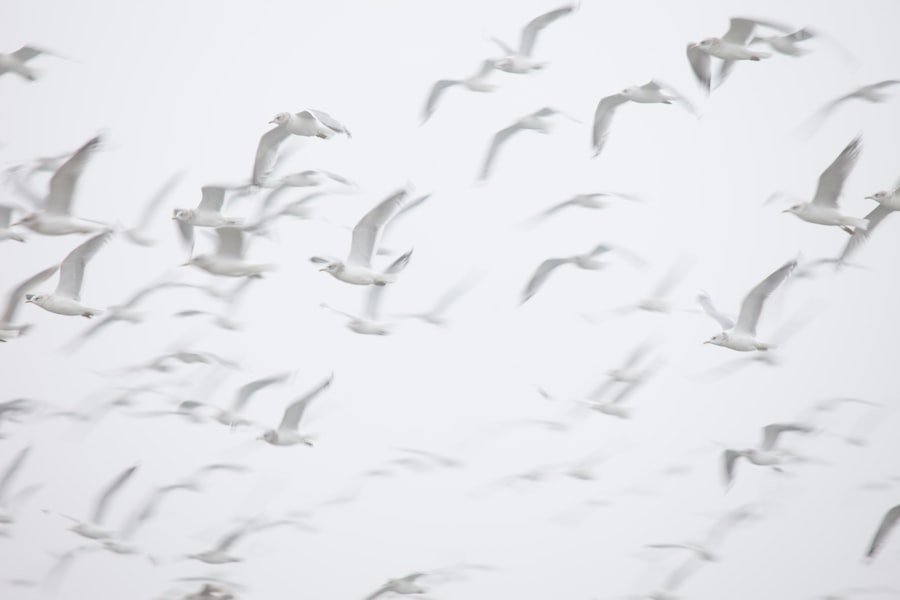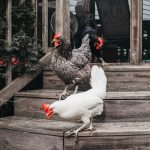Keeping ducks and chickens together can be a successful endeavor for poultry keepers. Both species are commonly raised in backyard settings and can coexist peacefully when their distinct needs are met. Ducks and chickens have different behavioral patterns and requirements, but with appropriate management, they can flourish in a shared environment and even develop social connections.
This article will examine the key aspects of maintaining ducks and chickens in the same space, including:
1. Understanding the specific needs of each species
2. Designing a suitable habitat
3.
Providing proper nutrition and feeding strategies
4. Addressing health concerns and veterinary care
5. Managing social interactions between ducks and chickens
6.
Offering practical advice for successful cohabitation
By addressing these topics, poultry keepers can create a harmonious living situation for both ducks and chickens, maximizing the benefits of raising these diverse bird species together.
Table of Contents
- 1 Understanding the Needs of Ducks and Chickens
- 2 Creating a Suitable Living Environment for Ducks and Chickens
- 3 Feeding and Nutrition for Ducks and Chickens
- 4 Health and Veterinary Care for Ducks and Chickens
- 5 Managing Social Dynamics and Interactions between Ducks and Chickens
- 6 Conclusion and Tips for Successfully Keeping Ducks and Chickens Together
- 7 FAQs
- 7.1 Can ducks and chickens live together?
- 7.2 What should I consider before keeping ducks and chickens together?
- 7.3 Do ducks and chickens need the same type of housing?
- 7.4 What do ducks and chickens eat?
- 7.5 How much space do ducks and chickens need when kept together?
- 7.6 What are the benefits of keeping ducks and chickens together?
- 7.7 Are there any potential drawbacks to keeping ducks and chickens together?
Key Takeaways
- Ducks and chickens can be kept together, but it’s important to understand their individual needs and behaviors to ensure a harmonious living environment.
- Ducks and chickens have different dietary and environmental requirements, so it’s crucial to provide a suitable living space that meets the needs of both species.
- Proper nutrition is essential for the health and well-being of ducks and chickens, so it’s important to provide a balanced diet that meets their specific nutritional needs.
- Regular health check-ups and veterinary care are important for both ducks and chickens to prevent and treat any potential health issues.
- Managing social dynamics and interactions between ducks and chickens is crucial to prevent aggression and ensure a peaceful coexistence within the flock.
Understanding the Needs of Ducks and Chickens
Dietary Needs
Ducks, being waterfowl, require a diet rich in protein to thrive. In contrast, chickens have different dietary needs. Their diet should be tailored to their specific requirements, which are distinct from those of ducks.
Housing Requirements
The housing needs of ducks and chickens also differ significantly. Ducks need access to water for swimming and foraging, while chickens require a secure coop for roosting at night. When keeping both species together, it’s essential to provide separate areas that cater to their specific needs.
Ducks and chickens exhibit different social behaviors. Ducks are highly social and form strong bonds with their flock mates. In contrast, chickens have a pecking order and can be territorial. Understanding these differences is crucial for creating a harmonious living environment for both species.
By recognizing and addressing these differences, poultry keepers can create an environment that promotes the health and well-being of both ducks and chickens.
Creating a Suitable Living Environment for Ducks and Chickens

Creating a suitable living environment for ducks and chickens involves providing adequate space, shelter, and access to water and food. Ducks require a larger living space compared to chickens, as they are more active and need room to roam and forage. Providing a spacious outdoor area with access to water is essential for ducks to thrive.
Additionally, ducks need protection from predators, so it’s important to provide secure fencing and shelter to keep them safe. Chickens, on the other hand, need a secure coop with nesting boxes for roosting at night and laying eggs. The coop should be well-ventilated and predator-proof to ensure the safety of the chickens.
In addition to space and shelter, providing access to water is crucial for ducks. Ducks need water for swimming, foraging, and grooming. A pond or shallow water source can provide ducks with the opportunity to engage in natural behaviors and maintain their health.
For chickens, access to clean water for drinking is essential, as well as a balanced diet to meet their nutritional needs. Providing separate feeding and watering stations for ducks and chickens can help prevent competition and ensure that each species has access to the resources they need. By creating a suitable living environment that meets the specific needs of both ducks and chickens, poultry keepers can promote the health and well-being of their flock.
Feeding and Nutrition for Ducks and Chickens
Feeding and nutrition are important aspects of keeping ducks and chickens together. Ducks have different dietary requirements compared to chickens, as they need a higher protein content in their diet. Ducks also require access to water for foraging and digestion, as they often dunk their food in water before consuming it.
Providing a balanced diet that meets the nutritional needs of both ducks and chickens is essential for their health and well-being. For ducks, this can include a commercial waterfowl feed with a higher protein content, as well as access to greens, insects, and aquatic plants. For chickens, a balanced diet of commercial poultry feed supplemented with grains, fruits, and vegetables can provide the necessary nutrients for their growth and egg production.
In addition to providing a balanced diet, it’s important to ensure that both ducks and chickens have access to clean water at all times. Ducks need water for swimming, foraging, and grooming, while chickens need water for drinking and regulating their body temperature. Providing separate watering stations for ducks and chickens can help prevent competition and ensure that each species has access to clean water.
By understanding the dietary requirements of both ducks and chickens, poultry keepers can provide a nutritionally balanced diet that promotes the health and well-being of their flock.
Health and Veterinary Care for Ducks and Chickens
Maintaining the health of ducks and chickens is essential for their well-being. Both species are susceptible to various diseases and parasites, so it’s important to implement a regular health care routine to prevent illness and promote good health. Ducks are prone to respiratory infections and foot problems, while chickens are susceptible to respiratory diseases, parasites, and reproductive issues.
Providing regular veterinary care, including vaccinations, deworming, and parasite control, can help prevent illness and maintain the health of both ducks and chickens. In addition to veterinary care, maintaining a clean living environment is crucial for preventing disease in ducks and chickens. Regularly cleaning the coop, providing clean bedding, and removing feces can help reduce the risk of illness and parasites.
Providing access to fresh water at all times is also important for maintaining the health of both species. By implementing a regular health care routine and maintaining a clean living environment, poultry keepers can promote the health and well-being of their flock.

Understanding Duck and Chicken Behavior
Ducks are social animals that form strong bonds with their flock mates, whereas chickens have a pecking order and can be territorial. This fundamental difference in behavior is crucial to consider when introducing ducks and chickens to each other.
Providing a Harmonious Environment
To promote peaceful coexistence, it’s essential to provide separate areas for each species to meet their specific needs. This can be achieved by providing multiple feeding stations, which can help prevent competition between ducks and chickens. Additionally, providing separate areas for roosting at night can help reduce conflicts.
Environmental Enrichment for Stress Reduction
Environmental enrichment can play a significant role in reducing stress and promoting positive interactions between ducks and chickens. This can be achieved by providing hiding spots, perches, and toys that encourage natural behaviors in both species. By doing so, poultry keepers can create an environment that fosters harmonious cohabitation between ducks and chickens.
By understanding the social dynamics of ducks and chickens and providing an environment that meets their specific needs, poultry keepers can promote harmonious cohabitation between the two species.
Conclusion and Tips for Successfully Keeping Ducks and Chickens Together
Keeping ducks and chickens together can be a rewarding experience for poultry enthusiasts. By understanding the needs of both species, creating a suitable living environment, providing a balanced diet, maintaining their health, and managing social dynamics, poultry keepers can promote the well-being of their flock. Some tips for successfully keeping ducks and chickens together include providing adequate space, shelter, access to water, balanced nutrition, regular veterinary care, maintaining a clean living environment, and managing social dynamics between the two species.
With proper care and management, ducks and chickens can thrive together in the same living environment, forming unique social bonds and providing joy to poultry keepers.
If you’re considering keeping a duck and three chickens together, you may also be interested in learning about the best practices for turning a shed into a chicken coop. This article from Poultry Wizard provides valuable insights on how to create a suitable living space for your feathered friends. Check it out here for tips on creating a comfortable and secure environment for your duck and chickens.
FAQs
Can ducks and chickens live together?
Yes, ducks and chickens can live together harmoniously as long as they have enough space, proper housing, and access to water.
What should I consider before keeping ducks and chickens together?
Before keeping ducks and chickens together, consider the space requirements, the need for water access, and the potential for different dietary needs.
Do ducks and chickens need the same type of housing?
While ducks and chickens can share the same type of housing, ducks require access to water for swimming and cleaning, so their housing should accommodate this need.
What do ducks and chickens eat?
Ducks and chickens have different dietary needs. Chickens primarily eat grains and seeds, while ducks require a diet higher in protein and also enjoy foraging for insects and plants.
How much space do ducks and chickens need when kept together?
Ducks and chickens need at least 4 square feet of space per bird in their coop, and at least 10 square feet of outdoor space per bird for foraging and exercise.
What are the benefits of keeping ducks and chickens together?
Keeping ducks and chickens together can provide pest control, companionship, and a diverse range of eggs for the owner.
Are there any potential drawbacks to keeping ducks and chickens together?
Potential drawbacks of keeping ducks and chickens together include the need for separate dietary considerations, the potential for aggression between different species, and the need for adequate water access for ducks.
Meet Walter, the feathered-friend fanatic of Florida! Nestled in the sunshine state, Walter struts through life with his feathered companions, clucking his way to happiness. With a coop that’s fancier than a five-star hotel, he’s the Don Juan of the chicken world. When he’s not teaching his hens to do the cha-cha, you’ll find him in a heated debate with his prized rooster, Sir Clucks-a-Lot. Walter’s poultry passion is no yolk; he’s the sunny-side-up guy you never knew you needed in your flock of friends!







